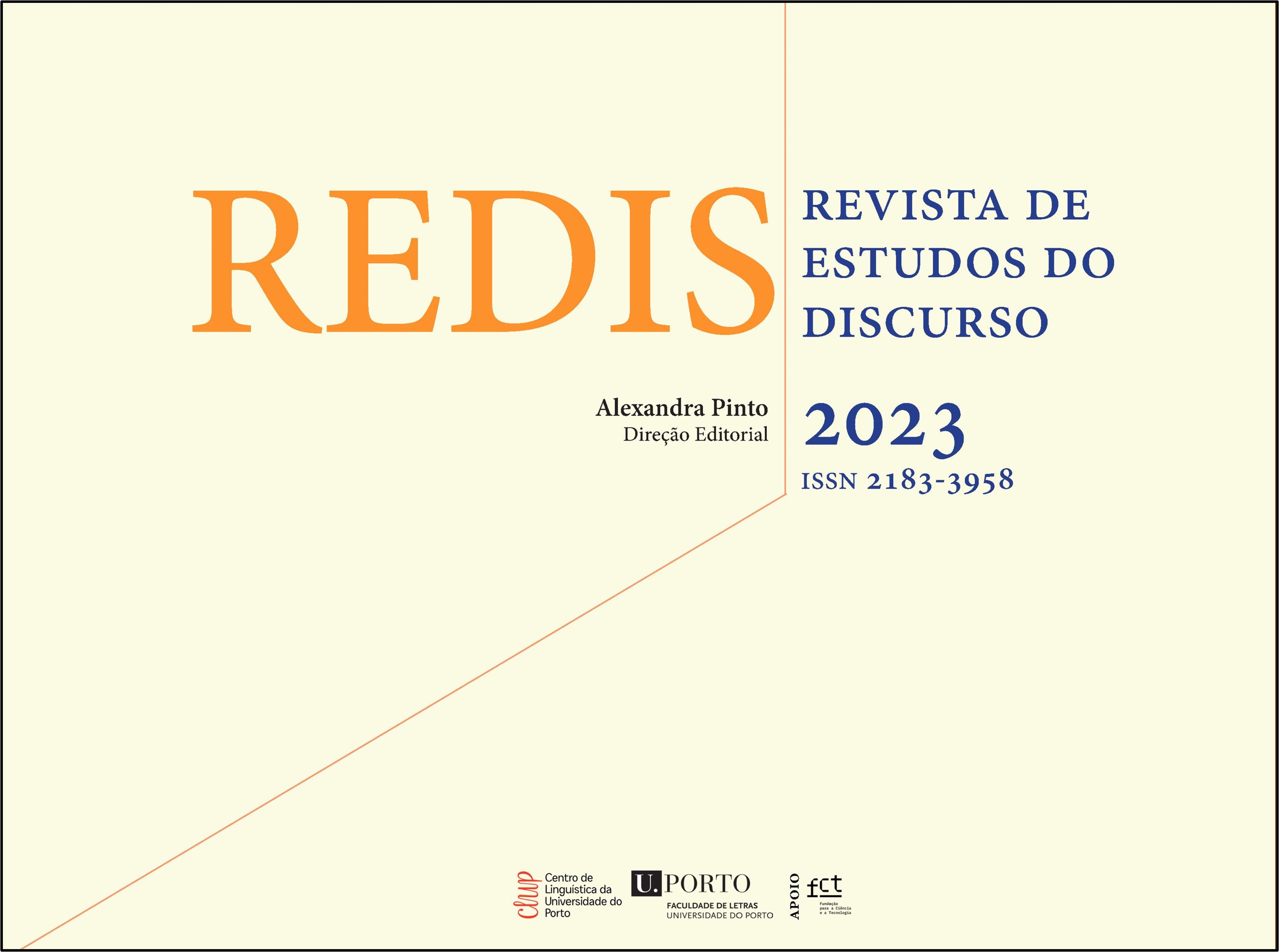Ethos e argumentação nas funções-orador: juiz, ministro e candidato
DOI:
https://doi.org/10.21747/21833958/red13a2Palavras-chave:
Ethos, Argumentação, Discurso, Linguística de TextoResumo
Neste estudo, objetiva-se realizar a análise descritivo-interpretativa da argumentação e do ethos construídos em face da mudança de papel social admitida por um sujeito em sua vida pública em três contextos: juiz, ministro da justiça e candidato. Para tanto, ancorados na Linguística Textual, utiliza-se noções e procedimentos de análise provenientes da teoria da argumentação no discurso (TAD) para uma análise textual/discursiva de publicações pessoais em redes sociais do sujeito da pesquisa nos três períodos de deslocamento de função social indicados. Em termos de pesquisa, a principal problematização refere-se a como foi realizada a geração e a manutenção de uma imagem de si positiva ou de engajamento na transição/manutenção de cargos. Resultados das análises indicam um deslocamento particular no emprego de estratégias pelo orador para a adesão do auditório nos compósitos analisados desde sua formação em um cargo público, especialmente, em relação à manutenção do ethos estereotipado como herói, criado na primeira fase como juiz.
Referências
AMOSSY, R. (2020). A argumentação no discurso. São Paulo: Contexto.
AMOSSY, R. (2017). Apologia da polêmica. São Paulo: Contexto.
AMOSSY, R. (2005). Da noção retórica de ethos à análise do discurso. In: AMOSSY, R. Imagens de si no discurso: A construção do ethos. São Paulo: Contexto, pp. 9-28.
AMOSSY, R. (2005). O ethos na intersecção das disciplinas: retórica, pragmática, sociologia dos campos. AMOSSY, Ruth. Imagens de si no discurso: a construção do ethos. São Paulo: Contexto, pp. 119-143.
EGGS, E. (2005) Ethos aristotélico, convicção e pragmática moderna. AMOSSY, Ruth. Imagens de si no discurso: a construção do ethos Trad. Dilson F. da Cruz, Fabiana Komesu e Sírio Possenti., São Paulo: Contexto, pp. 29-56.
CAVALCANTE, M. M. et al. (2022). Linguística textual: conceitos e aplicações. Campinas: Pontes Editores.
MEYER, M. (2007). A retórica. São Paulo: Ática.
PAVEAU, M-A. (2021). Análise do discurso digital: dicionário das formas e das práticas. Julia Lourenço Costa & Roberto Leiser Baronas (Orgs.). Campinas, SP: Editora Pontes.
PERELMAN, C. (1993). O império retórico: retórica e argumentação. São Caetano: Asa Editores.
PERELMAN, C. (1999). Retóricas. São Paulo: Martins Fontes.
PERELMAN, C. & OLBRECHTS-TYTECA, L. (1996). Tratado da argumentação: a nova retórica. São Paulo: Martins Fontes.
REBOUL, O. (2004). Introdução à retórica. São Paulo: Martins Fontes.
Downloads
Publicado
Como Citar
Edição
Secção
Licença
Direitos de Autor (c) 2023 Juliano dos Santos Garcia, Evandro de Melo Catelão

Este trabalho encontra-se publicado com a Licença Internacional Creative Commons Atribuição 4.0.
Os autores cedem à REDIS: Revista de Estudos do Discurso, o direito exclusivo de publicação dos seus textos, sob qualquer meio, incluindo a sua reprodução e venda em suporte papel ou digital, bem como a sua disponibilização em regime de livre acesso em bases de dados.




